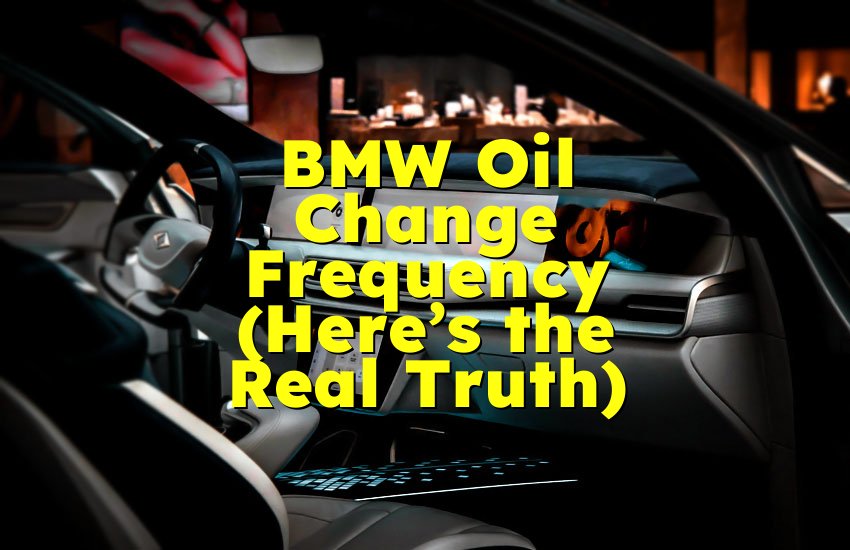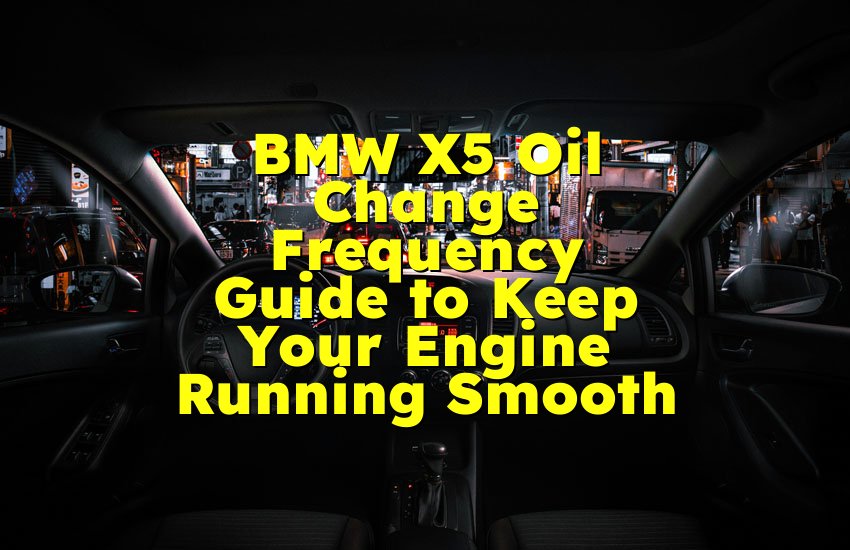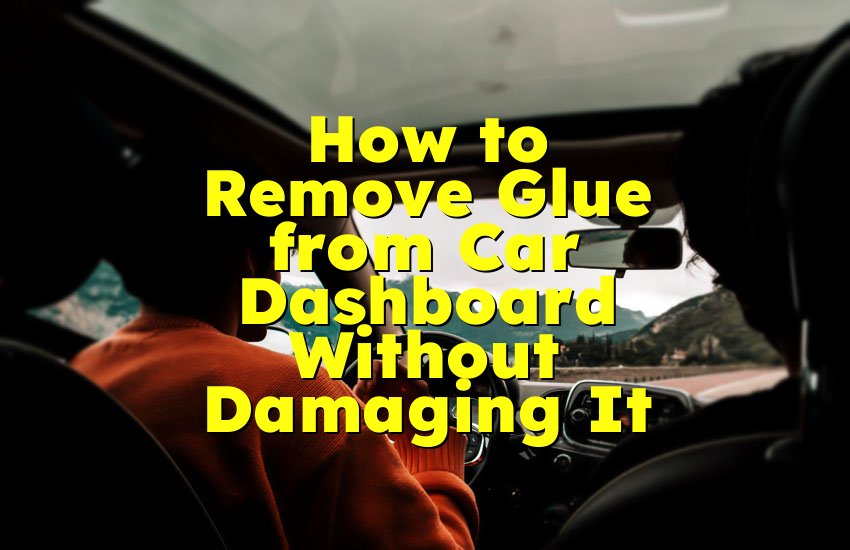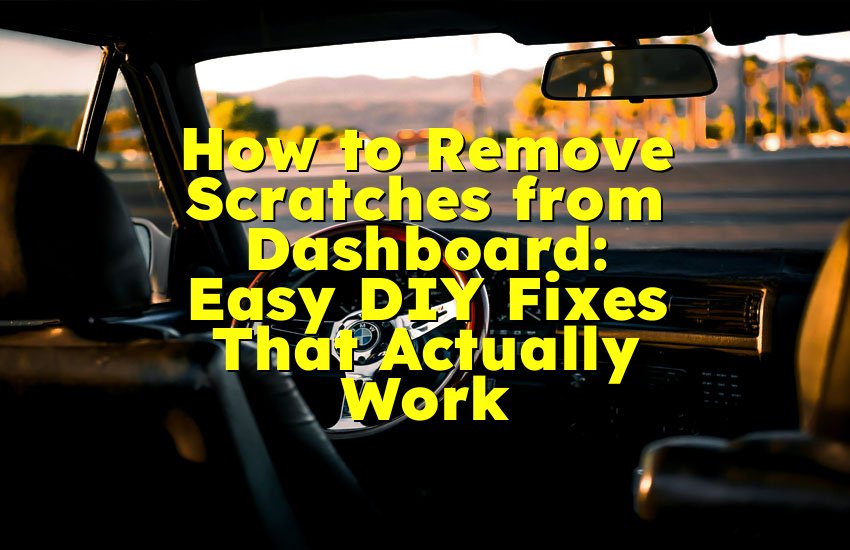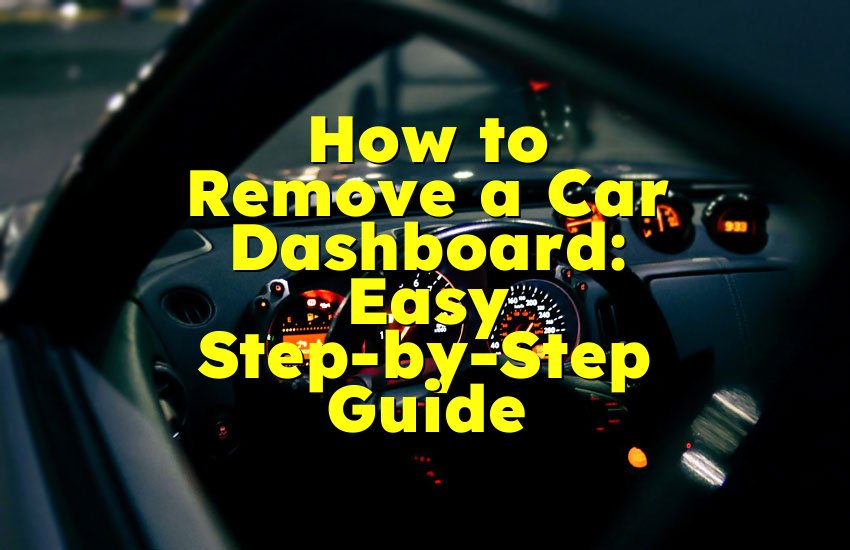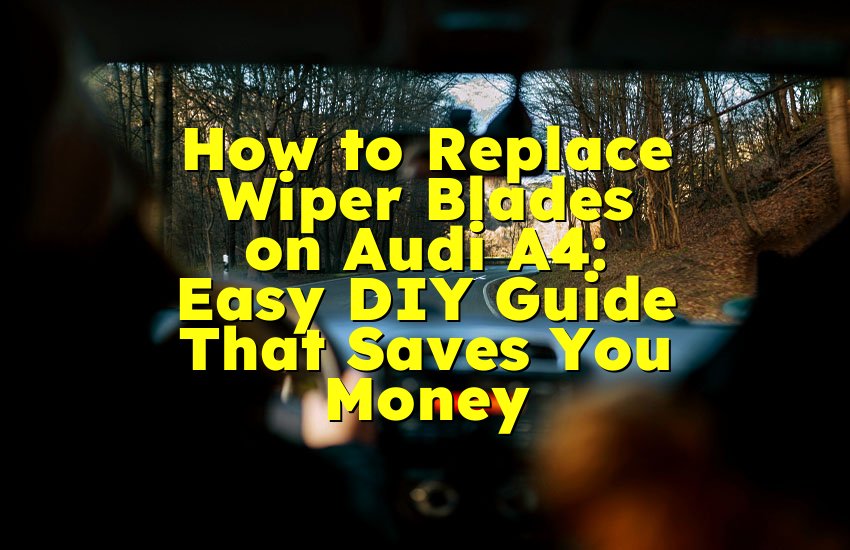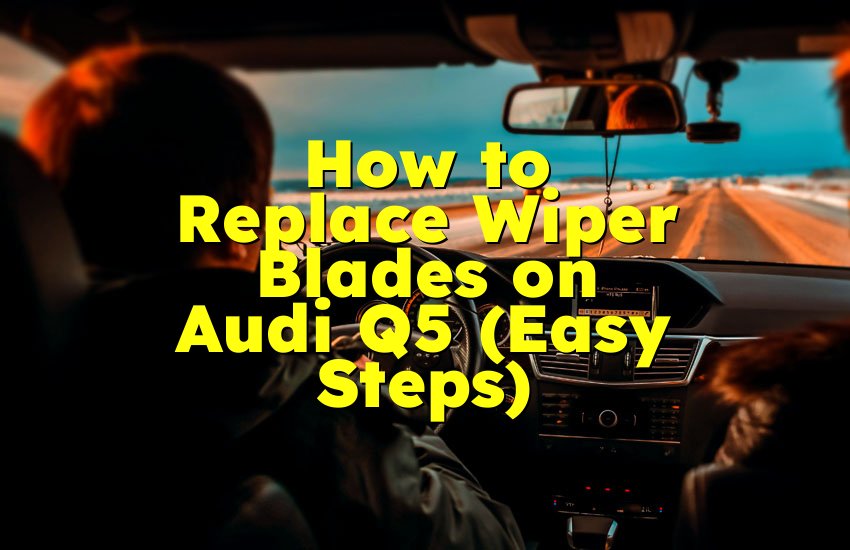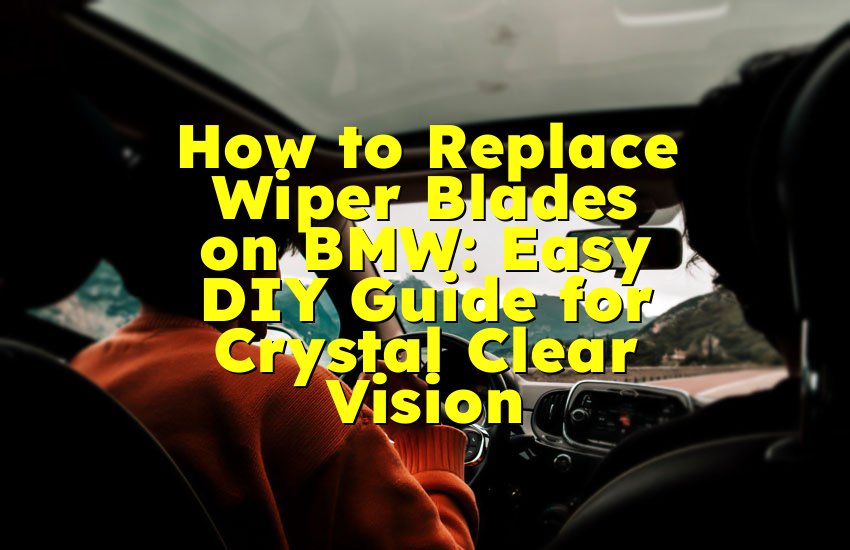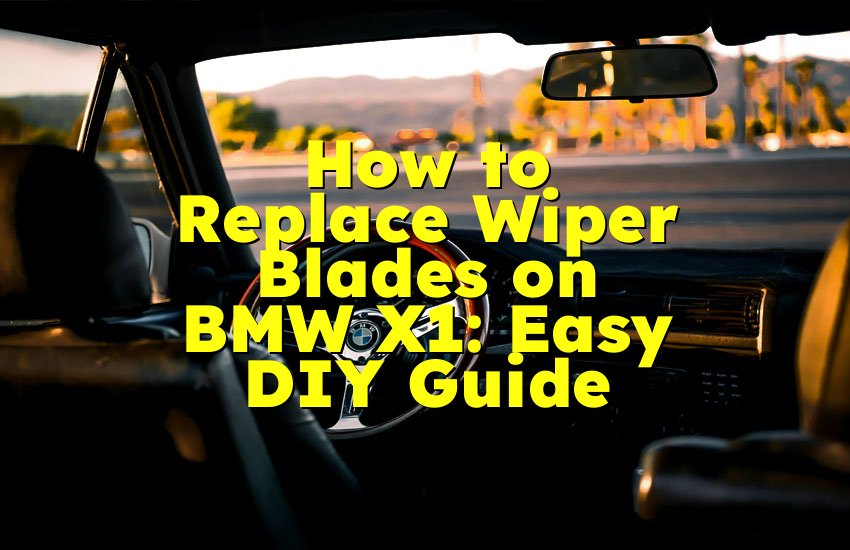As an Amazon Associate, I earn from qualifying purchases at no extra cost to you.
Difference Between a Bad Wheel Bearing and a Bad CV Joint
Ever hear that weird noise coming from your car when you're driving, and wonder, "What on earth is that sound?" If you’ve been driving around thinking it’s no big deal, let me tell you—those noises could be a sign that something's wrong with your vehicle, and you might want to pay attention to them. Two common culprits are a bad wheel bearing and a faulty CV joint. But how can you tell the difference between the two? Don't worry; I'm here to help you figure that out. By the end of this post, you'll have the knowledge to know exactly what's causing that odd sound, and how to handle it!
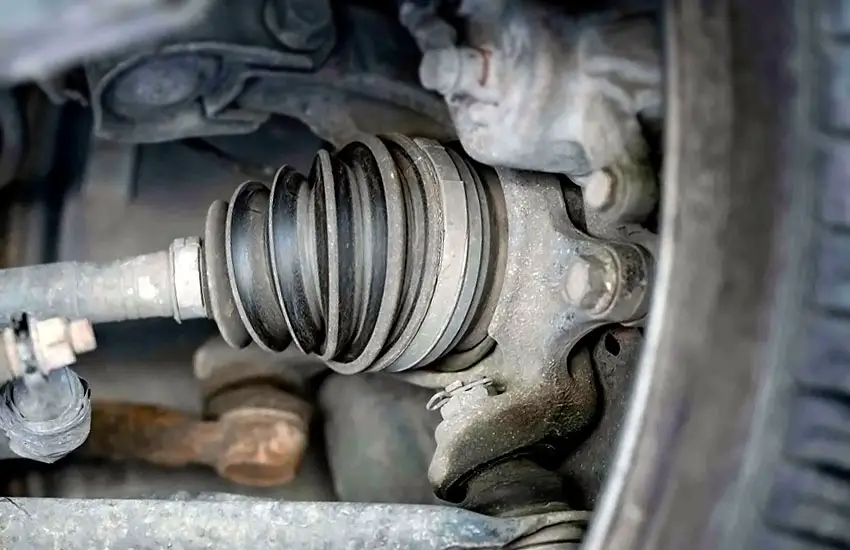
What is a Wheel Bearing?
If you’ve ever taken your car for a spin, you've probably heard the phrase "wheel bearing" tossed around. But what does it really mean? Let's dive into the specifics!
A wheel bearing is a crucial part of your car's suspension system. It's essentially a set of steel balls or rollers housed within a metal ring. These bearings allow the wheel to spin smoothly while supporting the weight of your vehicle. In short, wheel bearings help your tires rotate with minimal friction, keeping your car rolling down the road efficiently.
The Importance of Wheel Bearings
Without wheel bearings, your car wouldn't be able to move smoothly. These tiny but mighty parts help your tires rotate freely while ensuring that the weight of your car is evenly distributed. Over time, wheel bearings wear down due to the constant pressure from the car's weight and movement.
As you drive, the wheel bearing allows the wheel hub (the part that connects the tire to the car) to rotate. But as it wears out, you may hear a strange noise that could indicate something is wrong with the bearing.
How a Wheel Bearing Fails
Wheel bearings can fail for several reasons, such as lack of lubrication, contamination from dirt and water, or simply wear and tear from years of use. When the grease inside the bearing gets too old or is contaminated, the metal balls or rollers inside start grinding against each other, causing friction and heat. Eventually, this leads to wear and the bearing's inability to do its job.
A bad wheel bearing often leads to a few telltale signs: a grinding or growling noise, vibrations in the steering wheel, or even difficulty turning. If you ignore these signs, the bearing can deteriorate further, which could affect the safety and performance of your vehicle.
What is a CV Joint?
Now that we've covered wheel bearings, let's take a look at CV joints—another important part of your car's suspension and drivetrain system.
A CV (Constant Velocity) joint is a critical component in front-wheel drive (FWD) and all-wheel drive (AWD) vehicles. It connects the axle to the wheel, transferring power from the engine to the wheels. The CV joint allows the wheels to rotate while the car's suspension system adjusts to bumps in the road.
In simple terms, the CV joint helps your wheels turn smoothly while allowing for movement in the suspension. Without a properly functioning CV joint, you'd be in for a bumpy, noisy ride!
The Role of the CV Joint
The CV joint is particularly important in cars with front-wheel drive or all-wheel drive systems because it ensures that power is sent to the wheels while also accommodating the movement of the suspension. When you turn the wheel, the CV joint flexes, allowing the axle to rotate at varying angles while still transferring power efficiently.
CV joints are built to last for a long time, but like all car parts, they can eventually wear out. When a CV joint starts to fail, it can make a distinct popping, clicking, or knocking noise when you turn the steering wheel or accelerate. If left unchecked, a bad CV joint can cause further damage to the axle or other drivetrain components.
Causes of CV Joint Failure
The primary reason for CV joint failure is wear and tear, especially if the protective boot around the joint becomes cracked or damaged. This boot is responsible for keeping out dirt, moisture, and debris while holding in the grease that lubricates the joint. Once the boot is compromised, the joint is no longer properly lubricated, leading to increased friction and eventually failure.
Other causes of CV joint failure include driving on rough roads, making sharp turns at high speeds, or failing to maintain proper lubrication. If your car starts making noises when turning or accelerating, it could be a sign that the CV joint needs attention.
Common Symptoms of a Bad Wheel Bearing
So, how can you tell if your wheel bearing is on its last legs? Let's break down some of the most common symptoms.
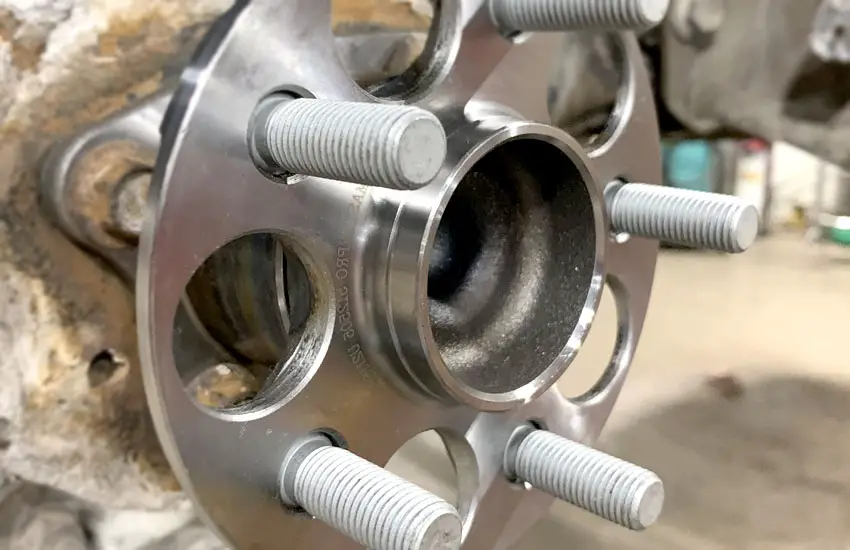
1. Grinding or Growling Noises
The most obvious sign of a bad wheel bearing is a grinding or growling noise that seems to get louder as you drive. This sound is often more pronounced when you turn or change speed, as the load on the bearing shifts. The sound may also seem to come from the specific wheel that has the faulty bearing. So, if you hear a growl that increases as you speed up, it's time to investigate the wheel bearings.
2. Vibrations in the Steering Wheel
Another common symptom of a failing wheel bearing is vibrations in the steering wheel. This occurs because the wheel bearing is no longer smooth and is causing uneven rotation of the wheel. These vibrations can be subtle at first but might become more noticeable as the bearing worsens.
3. Uneven Tire Wear
Since wheel bearings are responsible for keeping the wheels aligned, a bad bearing can lead to uneven tire wear. If one wheel is bearing more weight or experiencing more friction than the others, it can cause that tire to wear down faster. If you notice one tire wearing out quicker than the others, it could be a sign that your wheel bearing is to blame.
4. Play in the Wheel
If your wheel bearing is severely worn, you may notice play or movement in the wheel itself. This can be checked by lifting the vehicle and manually trying to wiggle the wheel. If it moves or feels loose, your wheel bearing may be the culprit. Don't ignore this sign, as a loose wheel could lead to further damage or even a potential safety issue.
Common Symptoms of a Bad CV Joint
Now that we've covered wheel bearings, let's talk about the symptoms of a bad CV joint. Since the CV joint plays such an essential role in transferring power from your car's engine to the wheels, its failure can lead to some pretty dramatic symptoms.
1. Clicking or Popping Noises
One of the most common signs of a bad CV joint is a clicking or popping noise when turning or accelerating. This noise is caused by the worn-out joint struggling to maintain smooth rotation as it moves at varying angles. If you hear a distinctive clicking sound when turning corners, it's a strong indicator that the CV joint needs to be replaced.
2. Grease Leaks
Since CV joints are packed with grease to keep them lubricated, a tear or crack in the protective boot can cause grease to leak out. If you notice grease on the inside of the wheel or around the CV joint, it's a sign that the boot has been damaged, and the joint is no longer properly lubricated. Without enough grease, the joint will wear out much faster, so this is something to address immediately.
3. Vibrations During Acceleration
A bad CV joint can also cause vibrations or shuddering during acceleration. As the joint becomes worn, it loses its ability to transfer power smoothly, leading to noticeable shaking or jerking when you press on the gas. If the vibration seems to be coming from the front of the car, it could be a CV joint issue.
4. Difficulty Turning or Handling
A failing CV joint can cause the steering to feel stiff or less responsive, especially when turning sharply. If you notice that your car is hard to steer or turns with difficulty, a bad CV joint could be the cause. This can also make your ride feel less smooth and less predictable.
Key Differences in Sounds and Noises
You might be wondering—how do I tell if the noise is coming from a bad wheel bearing or a CV joint? Well, there are some key differences in the sounds produced by each issue, and recognizing them can help you determine what's going wrong with your car.
Wheel Bearing Noise
As mentioned earlier, the noise from a bad wheel bearing is typically a grinding or growling sound. This sound often increases in intensity as you speed up. It may be most noticeable when you turn, as turning shifts the load on the bearing. The noise from a wheel bearing tends to be more of a constant hum or growl.
CV Joint Noise
On the other hand, a bad CV joint often produces a clicking or popping noise, especially when turning. The noise is usually more rhythmic, happening each time you make a turn or accelerate. If you hear a sharp clunking sound when turning, it's a strong indication that the CV joint is the problem.
How to Diagnose: Step-by-Step Process
Diagnosing whether you have a bad wheel bearing or CV joint requires a bit of detective work. Here's a step-by-step guide to help you identify the issue:
Listen Carefully to the Noise
Pay attention to the type of noise you're hearing. Is it a growl or hum? It could be a wheel bearing. A clicking noise when turning points to a CV joint.
Inspect the Wheels
Look for any visible signs of damage, such as uneven tire wear, grease leaks, or cracks in the boots.
Check for Play in the Wheel
Lift the car and manually check for any movement in the wheel. A loose wheel can indicate a bad wheel bearing.
Drive and Turn
Take your car for a test drive and try turning at different speeds. If the noise gets louder when turning, it's more likely to be a wheel bearing issue. If it's a clicking noise, the CV joint may be to blame.
When to Seek Professional Help
If you've gone through the steps above and still aren't sure whether it's the wheel bearing or the CV joint causing the problem, don't hesitate to seek professional help. Mechanics have the tools and experience to properly diagnose and fix the issue before it gets worse.
Frequently Asked Questions
Is it safe to drive with a bad wheel bearing?
While it's possible to drive with a bad wheel bearing, it's not safe. A damaged wheel bearing can cause your wheel to come loose, leading to a serious accident. Get it fixed as soon as possible.
Can a bad CV joint cause vibration?
Yes, a bad CV joint can cause vibrations, especially during acceleration or turning. This is usually a sign that the joint is worn out.
Do I need to replace the wheel bearing and CV joint together?
In most cases, you'll need to replace the damaged part only. However, if one part is severely damaged, it may affect the other, and it's best to get both checked out by a mechanic.
Is it possible to hear a wheel bearing failing?
Yes, when a wheel bearing starts to fail, it often produces a distinct grinding or growling noise. It can get louder over time.
Can I fix a bad CV joint myself?
Fixing a CV joint requires specific knowledge and tools. It’s often best to leave the repair to a professional mechanic.
Do I need to replace both CV joints if one is bad?
If only one CV joint is bad, you can replace just that one. However, replacing both CV joints at the same time can prevent future issues.
Can a CV joint fail suddenly?
Yes, a CV joint can fail suddenly, especially if the protective boot is torn and grease leaks out. Regular inspections can help prevent this.
Is it expensive to replace a CV joint?
Replacing a CV joint can be costly, with prices varying depending on the make and model of your vehicle. Labor costs can add up, but it's necessary for the safety of your car.
Can a wheel bearing be repaired?
Wheel bearings generally need to be replaced once they're damaged. Repairing them isn't typically an option, as the wear and tear are irreversible.
Do I need to replace the entire axle with a bad CV joint?
In most cases, only the CV joint needs to be replaced. However, if the axle is damaged, it may need to be replaced as well.
I hope this guide helps you identify whether you have a bad wheel bearing or CV joint, and get your car back in tip-top shape! Remember, don't ignore those strange noises—your car is trying to tell you something!



